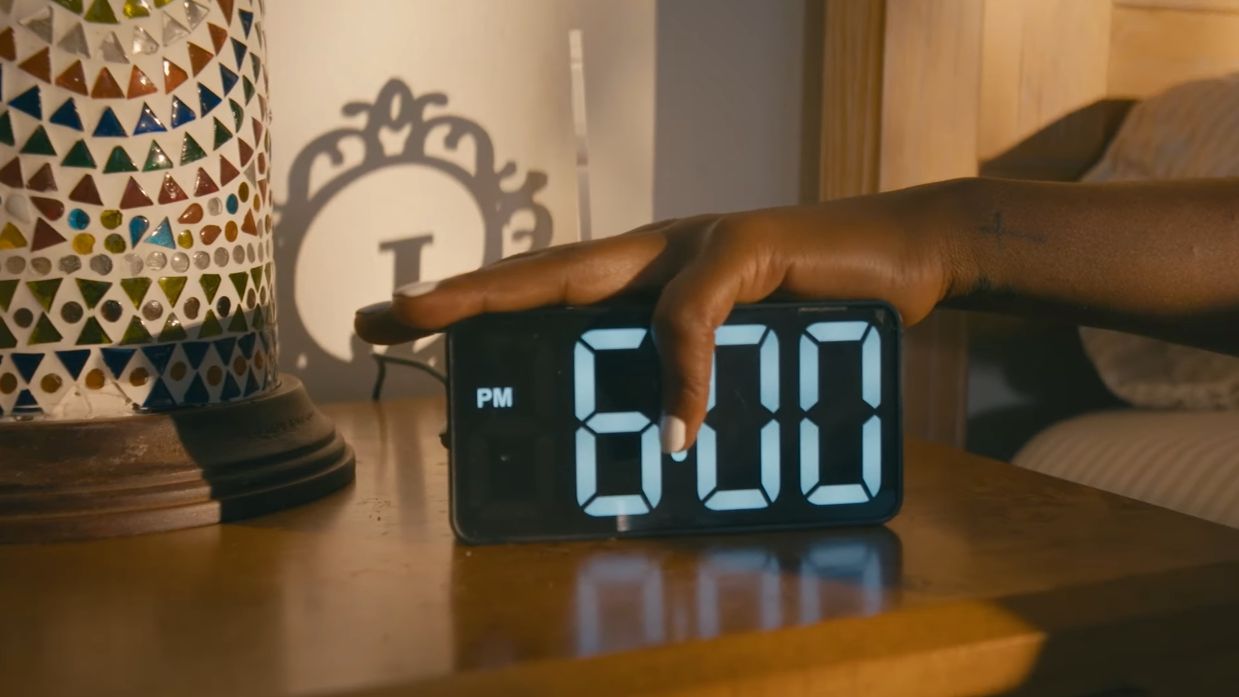However, many times we encounter difficulties in maintaining this habit, sometimes due to oversleeping or laziness. Failing to wake up early multiple times can make us wonder why we can't maintain this habit.
1. Experience:

If you have also experienced these struggles, you are not alone. I have also faced similar difficulties. My parents always advised me to wake up early since I was young, and I also understand the benefits of this. However, the real world is not always as easy as we imagine.
Despite my efforts, I still failed many times to wake up early. Controlled by emotions and laziness, I often easily fall into a state of laziness and cannot maintain the habit of waking up early. The feeling of frustration and pressure from family and society is also a part of the reason why I cannot maintain this habit.
That is why understanding oneself and the specific reasons that prevent us from waking up early is extremely important. Only when we understand these issues can we find a suitable solution to overcome the difficulties and maintain the habit of waking up early effectively.
Being influenced by emotions, the first time I tried to wake up early at 6 a.m. The alarm clock rang but I still lingered, just wanting to turn it off and continue sleeping. I was angry with the alarm clock and with myself for why it was so difficult to wake up early. The answer is that we are human, and we often act on emotions without considering reason. Emotions are a powerful motivator, driving our actions. We like to eat sweets, touch something and receive positive feedback, and often repeat actions that bring comfort to ourselves and avoid unpleasant things. So clearly, waking up early does not bring comfort to oneself, even making oneself feel more miserable. So why do I wake up early? If I find a big enough reason to compensate for the difficulties of waking up early, will it help me have more motivation to continue trying to wake up early?
2. Motivation:

Two types of motivation lead us on a journey to explore the origins of motivation. According to psychologists, all explanations can be classified into two types: extrinsic motivation and intrinsic motivation. Extrinsic motivation is the results that performing an action will bring, such as studying to avoid failing a subject, or working to earn money. In contrast, intrinsic motivation is the joy and satisfaction that naturally arise from performing an action. For example, when you do what you love, you always feel excited and turn that work into daily joy.
An illustration of intrinsic motivation is the image of a child being given a pen and paper to draw for the first time, and they are engrossed in drawing for hours without getting bored. This shows that intrinsic motivation is strong and natural, without the need for external push.
Realizing that the reasons we can persuade ourselves to wake up early are extrinsic motivation, and they are often vague and unclear. Waking up early is not something we truly want, but something others want from us. We tend to resist things that are imposed on us, which is why we cannot wake up early even though many people advise us to do so.
Vague goals and social expectations can diminish our intrinsic motivation. Achieving success is not something we truly want, but something others desire from us. This is an unclear and unreliable goal, making us feel a loss of autonomy and joy in the process of action.
Intrinsic motivation and extrinsic motivation - two important aspects in completing tasks. In many cases, your completion may be stimulated by extrinsic motivation, such as fear of failing or the desire to reward yourself when the task is completed. I have experienced many successful cases using extrinsic motivation, such as when I had to run or travel.
However, if relying solely on extrinsic motivation, completing tasks may become more difficult or unsustainable. I often struggle to maintain the habit of waking up early because I have not found intrinsic motivation - the satisfaction or joy of waking up early without the need for rewards or fear.
3. Joy:

The problem is, without intrinsic motivation, I do not want to wake up early. However, intrinsic motivation often only appears when I am performing that action, such as waking up early. This raises the question: how to find intrinsic motivation?
Researchers of intrinsic motivation often classify it into three types. The first is "Conquering Challenges," a basic human need to explore and overcome challenges. The second is "Curiosity," the desire to explore and understand. The third is "Control," the need to take control and master one's living environment.
Realizing that I have some types of intrinsic motivation, I began to feel hopeful. I realized that I could transition from extrinsic motivation to intrinsic motivation. Instead of saying that I should wake up early for the health benefits, I decided to try waking up early as a personal experiment to understand myself better and feel the joy of taking control of my actions.
Furthermore, I also created additional extrinsic motivation by rewarding myself after each success, or inviting my parents to join to create a sense of responsibility and positive pressure. Gradually, I realized that combining both types of motivation can help me enhance my ability to act and maintain the habit of waking up early more effectively.
You may still not be able to wake up early, and that is nothing to worry about. It has been 21 days since I started trying to wake up early, and you may remember the information that if you maintain a habit for 21 days, you will never lose it. I did not fact-check this information, but do you know that, during the past 21 days, there were days when I could not wake up early as planned. Perhaps one or two days, because I had to work until 2-3 a.m. to meet a deadline, as a result, I would sleep in the next morning and take a few days to readjust my sleep schedule. I realized that to truly feel good, I need to sleep at least from 8 and a half to 9 hours, more than the average of 8 hours a night.
An interesting thing is that my mother asked me when she saw me yawning one morning: "Why not get more sleep instead of waking up early?" This question made me think about my mother's habit, always waking up early and wanting me to do the same. Surprisingly, my mother's answer was very flexible: "Just sleep more if needed, there's no need to always wake up early. Actually, if you're tired and can sleep more, then sleep more. No one dies from resting a little more."
4. Waking Up Early:

Over the years, even after leaving the military, I have continued to wake up early regularly. 21 days is not pressure to do anything automatically, but the flexibility to listen to your body and adjust it when necessary. Therefore, waking up early is not just about health, but also about listening and responding correctly to your body. Ultimately, success is not about waking up early every day, but about knowing how to adjust and balance your life to do everything efficiently.
Why can't you wake up early? This is a question that many people ask when they fail to achieve the goal of waking up early every day. Waking up early is a habit believed to be beneficial for health and well-being, but why do many people fail to do it?
There are many reasons why a person cannot wake up early. One of the most common reasons is sleep issues. Not having enough restful sleep is a major reason that makes waking up early difficult. The body needs a sufficient amount of sleep to recover and recharge, and if not ensured, waking up in the morning will become more challenging.
The habit of staying up late is another reason that makes waking up early difficult. Staying up late in the evening, frequently staying up late to work or entertain, will make your body unable to naturally wake up in the morning. This can create a negative loop, making waking up early more difficult.
Another reason is emotional and mood issues. Stress, anxiety, and tension can make waking up in the morning more difficult. When you feel pressure from work, study, or personal life, waking up in the morning can become difficult and uninteresting.
Additionally, another reason may be environmental issues at home and work. If you live in an unsuitable sleeping environment, such as noise, bright light, or discomfort, waking up in the morning will become more difficult. A poor sleeping environment can reduce the quality of your sleep, making waking up early more challenging.
Bad habits are also a reason that makes waking up early difficult. If you have a habit of staying up late, drinking alcohol or caffeine in the evening, or using your phone or computer before bed, all of these can reduce the quality of your sleep and make waking up in the morning more difficult.
Faced with these difficulties, how can you wake up early every day? First, create a good sleeping environment by reducing noise, light, and creating a comfortable space to sleep. Establish good sleep habits, including creating a regular sleep schedule and limiting the use of phones or computers before bed.
Furthermore, establish a regular waking schedule, including waking up and going to bed at the same time every day, even on weekends. Practice stress-reducing habits, including meditation, yoga, or light exercise in the evening, to help prepare your body and mind for sleep.
Finally, seek support from family, friends, or sleep experts if you find it difficult to wake up in the morning. They can provide you with suggestions and support to help you overcome challenges and achieve the goal of waking up early every day.
